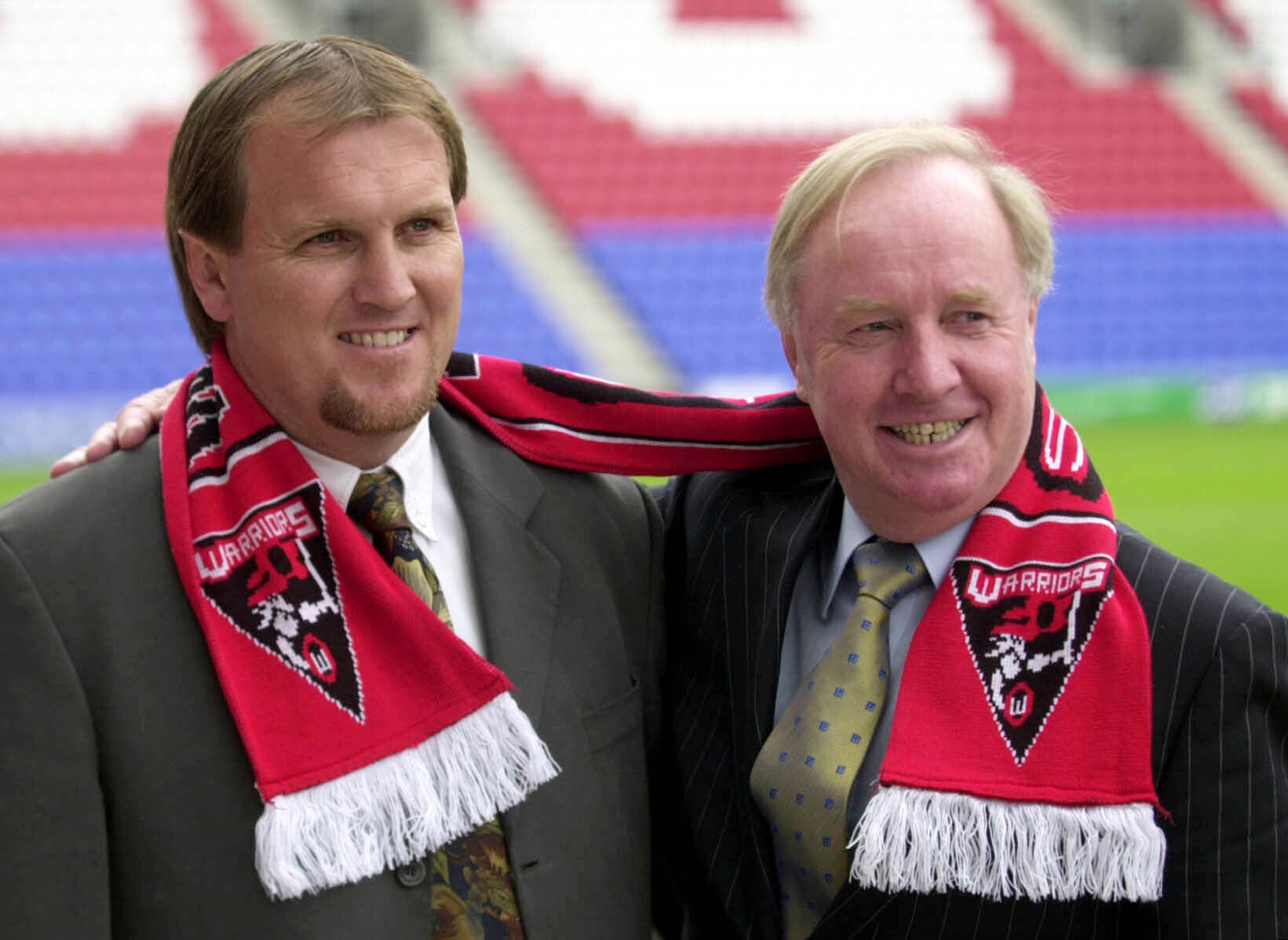Maurice Lindsay: The ground-breaking innovator who changed face of rugby league
The former Wigan chairman has died at the age of 81.

Maurice Lindsay was the man who changed the face of rugby league.
Widely accredited with turning Wigan into the dominant force of the late 1980s and early 90s, Lindsay went on to become one of the game’s most innovative administrators, most famously engineering the ground-breaking move to summer rugby and the advent of Super League.
Lindsay, who has died at the age of 81, overcame initial hostility amid suggestions of controversial mergers to broker a deal with BSkyB’s Rupert Murdoch in 1995 for an £87million jackpot that provided instant wealth for a host of clubs that were on the breadline.
It meant all the leading clubs were able to go full-time, competing on a level playing field with the pioneering Wigan team that, under Lindsay’s direction, had swept all before then up to then.
Lindsay, from a humble background, made his money from a plant-hire firm which he sold to devote himself to Wigan, joining the board in 1979 alongside Jack Robinson, Tom Rathbone and Jack Hilton to form the ‘Gang of Four’.
Breaking the mould, he was directly responsible for recruiting leading overseas coaches Graham Lowe and John Monie and players of the calibre of Dean Bell, Andy Platt, Brett Kenny, Denis Betts, Ellery Hanley, Frano Botica, Joe Lydon, Jason Robinson and Martin Offiah who helped the club to eight League Championships from 1987–96, as well as nine Challenge Cup wins including a record eight in a row.
Under Lindsay’s stewardship, Wigan also won three World Club Championships.
Away from his beloved club, Lindsay was Great Britain team manager for the tours to New Zealand in 1990 and Australia in 1992 and was also elected president of the Rugby Football League in 1992.
He left Wigan at the end of 1992 to succeed David Oxley as chief executive of the Rugby Football League and in 1996 was appointed as chairman of the Rugby League International Board. He also served a term as chairman of the Major Spectator Sports Division of the Central Council for Physical Recreation.
In 1998, Lindsay caused consternation when he left the governing body to become chief executive of the newly-formed Super League (Europe) Ltd and oversaw an acrimonious period of in-fighting as the clubs sought to secure more rights and a bigger share of the money pot.
Lindsay stepped down from his Super League role at the end of 1999 and returned to Wigan, whose success had begun to slip in the face of increased competition from St Helens and Bradford.
He helped restore their fortunes with victory in the 2002 Challenge Cup final and Wigan reached the Grand Final three times in four years.
However, in 2005 the club failed to reach the top six for the first time, even flirting with relegation, and Lindsay bowed out at the end of the 2007 season, citing ill health and the team’s shock Cup semi-final defeat by Catalans Dragons for his reasons.
Lindsay also served as a director of Wigan Athletic under chairman Dave Whelan, had a spell on the FA Council and spent two years as chairman of Preston North End, resigning in 2012 for health reasons.
Throughout his close involvement with rugby league, Lindsay never lost touch with his other great passion of horse racing and in 2009 the one-time bookmaker became chairman of Racecourse Data Technologies Ltd who supply and support computerised betting systems to every racecourse in the UK and Ireland.
For all his notable achievements, Lindsay was never universally popular. Never afraid to court controversy, he was publicly rebuked over his decision in 1996 to recall 12 members of the Great Britain touring squad, essentially to cut costs.
And, even at the height of his greatest triumph, he became a hate figure in Keighley, who lost a legal challenge over the failure to secure promotion in 1996, and Widnes, who were the big omissions from the inaugural Super League.
But Super League has undoubtedly been a success story and his achievement in bringing rugby league out of the dark ages will be Lindsay’s lasting legacy.
Bookmark popover
Removed from bookmarks